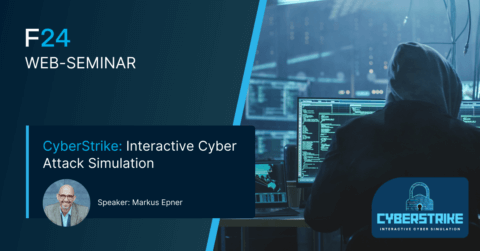Study shows:
After three years of crisis: majority of German companies rate their own crisis competence as good

Video Statement by Markus Epner, Crisis Expert and Head of Academy at F24
- Current survey shows: Majority of German executives (55%) rate crisis capability of their own company as mostly good or even very good.
- The greatest threats are exploding costs for energy and raw materials (57%), the shortage of skilled workers (50%) and a possible failure of electricity and gas supplies (42%), while the danger posed by cyber attacks (23%) and climate change (8%) are named less often.
- There is a need to catch up on increasing resilience, particularly in the systematisation of crisis management and in the use of IT.
The war in Europe, faltering supply chains, exploding prices and the climate crisis – in the face of global threats and seething trouble spots, companies in Germany are under pressure to act. Resilience, crisis competence and strategic foresight are among the indispensable key competencies. German businesses are also becoming increasingly aware of this. In a representative Civey survey (“Resilience Radar 2023”) commissioned by F24, more than 1,000 private-sector executives of German companies across all industries were asked about their assessment of the current threat situation and crisis management in their company.
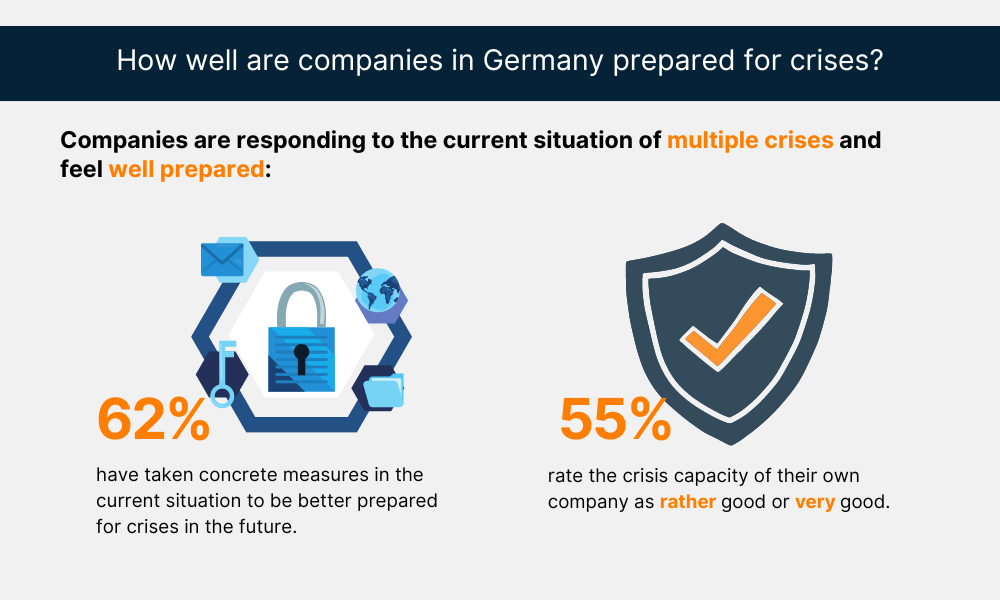
Majority of companies feel well prepared
62% said that their company had taken concrete measures in the current situation to be better prepared for crises in the future. 55% of respondents rated their company’s crisis capability as “rather good” or even “very good”. Only one in five companies does not consider itself to be sufficiently well positioned for future crises. Nevertheless, the survey also reveals potential for improvement: Just under a third (32%) of decision-makers say that their company systematically learns from past crises. Only 11% have a structured risk reporting system. For only 19%, resilience in crisis situations is a strategic goal.

„After three years of permanent crisis, a majority of companies in Germany have recognised the importance of crisis capability and resilience and have taken concrete measures. Now it is time to build on this, because the crises of the future will very likely be accompanied by even greater complexity. In addition to the strategic development of competencies for geopolitical analysis, the basic equipment also includes the consistent training of personnel and up-to-date technological equipment. After all, companies that set the right course in this area are demonstrably better off than their less well-prepared competitors.“

Markus Epner
Crisis expert and Head of Academy at F24
The biggest threat scenarios for companies
The executives surveyed cited skyrocketing costs for energy and raw materials (57%), a shortage of skilled workers (50%) and an outage in electricity and gas supplies (42%) as the biggest threats to business. Potential supply chain stoppages are also a problem for more than one in three companies (34%). Just under a quarter (23%) of respondents perceive cyber-attacks as a strong threat to the company. These have increased in recent years – also and especially among smaller and medium-sized companies. Less concrete risks such as climate change and the associated increased occurrence of climate catastrophes are perceived as far less threatening (8%) than the states of emergency currently prevailing in Europe due to the war in Ukraine or the current price trend.
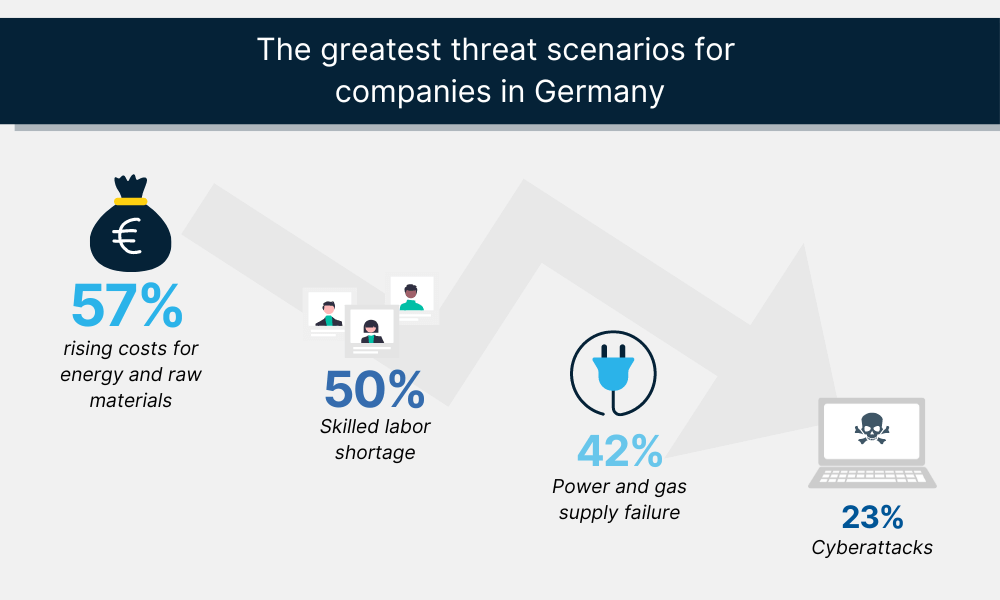
Need to catch up in systematisation and use of digital technologies
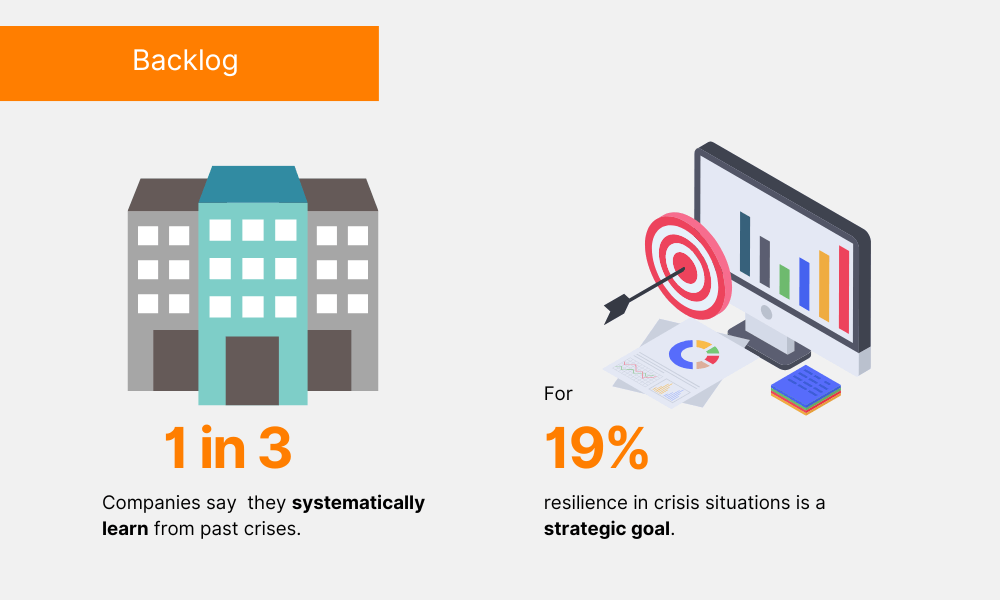
At least one in three companies has already started here and taken measures to improve the protection of their particularly critical and sensitive areas (30%) and the early identification of risks (29%). However, there is still some catching up to do when it comes to the use of information technologies and the systematisation of crisis management.
Only 12% already have staff specifically trained in crisis management. Just under half of respondents (45%) agree with the statement that the use of modern technologies such as artificial intelligence and digital crisis management solutions can help them get through crises better. However, only 12% of respondents say their company already uses digital crisis management tools. Only 7% have already taken resilience measures aimed at automating their operations in crisis situations.
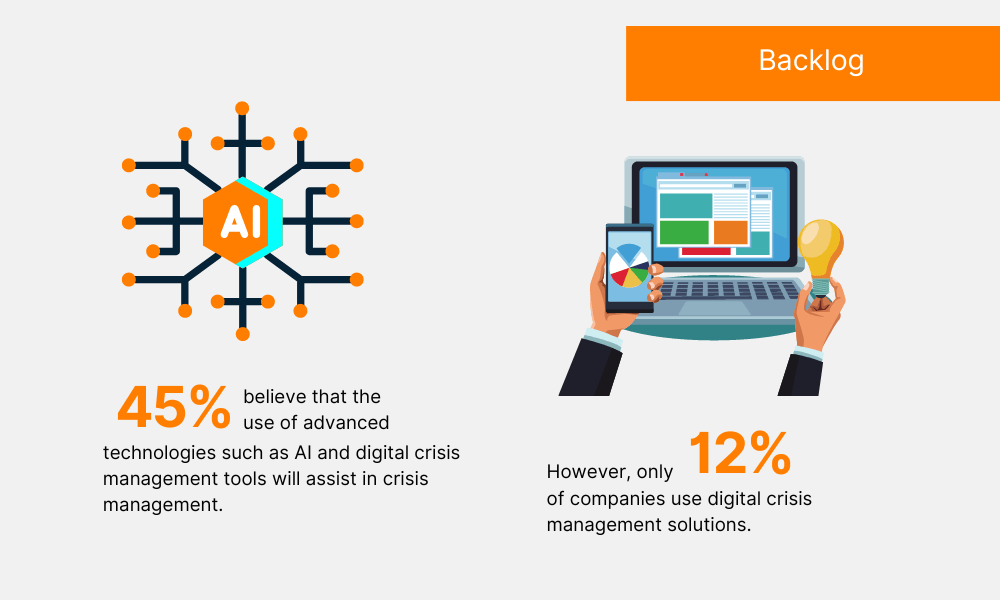

„Digital tools are important elements of a holistic resilience strategy. Their huge benefit is now recognised by the majority, but in many cases not yet consistently implemented. Digital solutions are a catalyst for crisis management – they combine human expertise with technological efficiency and enable rapid and targeted action even in difficult situations. On a positive note, quite a few companies are prepared to systematically improve their crisis management. These investments will pay off in critical situations by stabilising the business, mitigating losses and protecting assets.“

Benjamin Jansen
Senior Vice President Sales ENS/CM at F24
About the study:
A total of 1,000 private-sector C-level executives and decision-makers participated online in the representative F24 survey, conducted by Civey, between November 17, 2022 and December 18, 2022. In total, they answered 6 questions about their company’s threat assessment and crisis management. Due to quotas and weightings, the results of the survey are representative regardless of the industry, taking into account the statistical error of 4.9 – 5.4 percentage points (overall result).
About F24:
F24 is the leading software-as-a-service (SaaS) provider for business messaging, alerting, and incident and crisis management in Europe. F24’s highly innovative solutions support customers along the entire value chain, from high-volume communications in the corporate environment to governance, risk and compliance (GRC), alerting and smart event communication, as well as comprehensive crisis management. More than 3,000 customers worldwide rely on F24’s solutions to manage their communication needs, whether in the day-to-day communication of critical or confidential content or in the event of a crisis.

How well prepared is your organisation to handle a crisis or incident?
Test now how resilient your organisation is!



